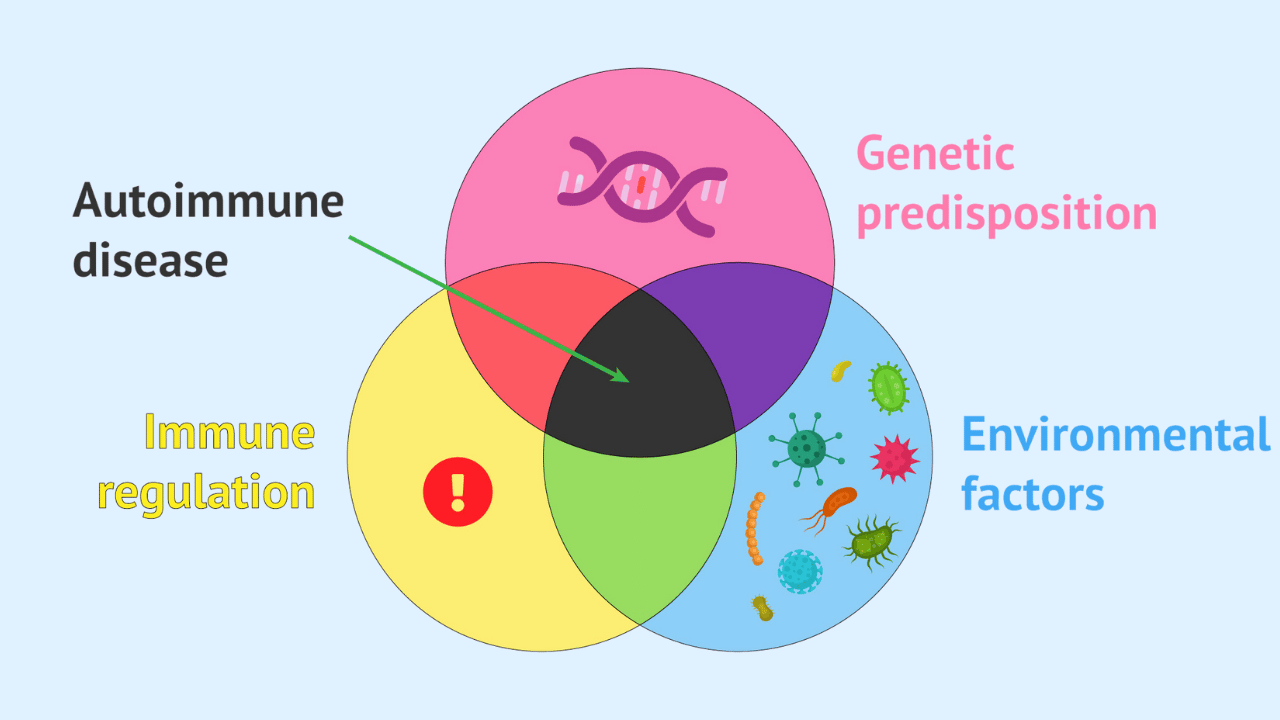This is the first article in the Autoimmune Series, where we cover what autoimmune diseases are, what is causing them, and what you can do about them.
We’ll first cover them broadly and then dive into specific conditions in later articles.
Autoimmune Conditions are Rapidly Increasing
Autoimmune conditions are becoming increasingly common, affecting millions of people worldwide.
In the United States, approximately 1 in 10 individuals suffer from some form of autoimmune disease, with the prevalence rising rapidly over the past few decades.
Adolescents have seen a particularly sharp increase, with cases tripling in the last 30 years.
Autoimmune diseases can manifest at any age but are most commonly diagnosed between the ages of 15 and 45, with about 75% of those affected being female.
What is an Autoimmune Condition?
“Auto” means self, and “immune” refers to the system in your body that is supposed to identify and attack foreign invaders.
In autoimmune diseases, the immune system mistakenly attacks the body’s own tissues.
This self-attack leads to inflammation and can cause significant damage to various parts of the body, depending on which tissues are targeted.
How the Immune System Locates Foreign Invaders
The immune system is designed to protect the body by attacking anything that is not recognized as “self.”
It identifies foreign invaders like bacteria, viruses, and toxins by their protein markers, which differ from those on the body’s own cells.
When functioning properly, the immune system efficiently distinguishes between self and non-self, attacking only harmful invaders.
How Autoimmune Conditions Are Formed
Autoimmune conditions occur when the immune system fails to recognize the body’s own cells and begins to attack them. This can be triggered by various factors:
- Environmental Triggers: Exposure to certain toxins, infections, or stress can act as triggers, initiating or exacerbating autoimmune responses.
- Leaky Gut Syndrome: Poor gut health can lead to increased intestinal permeability, allowing toxins and undigested food particles to enter the bloodstream. This can confuse the immune system and lead to autoimmune reactions.
- Molecular Mimicry: Some pathogens have protein structures similar to those of the body’s own cells. The immune system, while attacking the pathogen, may also start attacking the body’s cells due to this similarity.
- Genetic Susceptibility: While genetics can increase the risk of developing autoimmune diseases, they are not the sole cause. Genetic predisposition makes individuals more susceptible, but other factors are usually necessary to trigger the condition.
Understanding autoimmune conditions is crucial as their prevalence continues to rise. These diseases result from a complex interplay of genetic, environmental, and lifestyle factors, leading the immune system to mistakenly attack the body's own tissues. This foundational knowledge sets the stage for exploring more specific aspects of autoimmune diseases in our subsequent articles.
Stay tuned for our next article in the Autoimmune Series, where we will delve deeper into the critical connection between gut health and autoimmune diseases. Learn how maintaining a healthy gut can play a pivotal role in managing and potentially preventing these conditions.
Disclaimer: This article is purely informational and makes no claims as to treatment or cure from any supplement or program Myimmunity may offer. If you or someone you know has an autoimmune condition, we recommend you see a doctor trained in functional medicine to help you locate the cause of the disease or condition and recommend a solution for it.



Leave a comment
All comments are moderated before being published.
This site is protected by hCaptcha and the hCaptcha Privacy Policy and Terms of Service apply.